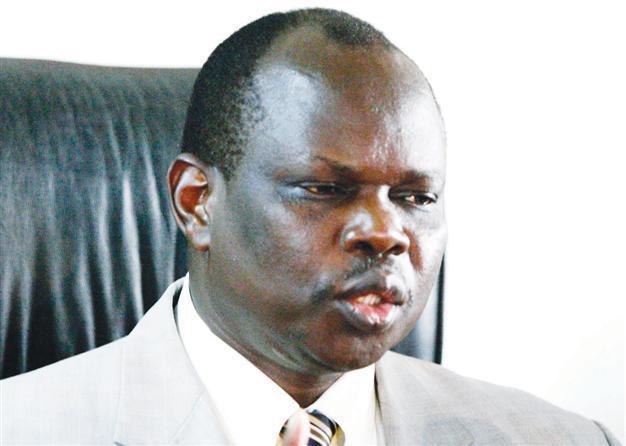Last minute oil deal no quick fix for Sudan crisis
KHARTOUM - Agence France-Presse

Head negotiator on the part of southern Sudan, Pagan Amum. EPA photo
A last-minute oil deal reached over the weekend between Sudan and South Sudan offers no quick fix for Khartoum’s economic crisis and remains tied to progress on security issues, analysts say.
Both sides agreed Juba would pay Khartoum a package amounting to about $3 billion, as well as a per-barrel fee for sending its oil through the north’s infrastructure for export via Port Sudan.
Juba said the fee is $9.48 per barrel. Khartoum has not commented on the final fee, but El Shafie Mohammed El Makki, head of political science at the University of Khartoum, said the figures are not encouraging although “something is better than nothing.” “I think that the economic crisis is very, very, very serious,” he said. “I don’t think such an amount of money can solve the problems.” The true economic value of the deal is also difficult to assess because numbers mentioned by either side are “directed towards the domestic audience,” said Magdi El Gizouli, a fellow at the Rift Valley Institute, a non-profit research organization.
Oil has been at the heart of tensions and economic difficulties for Sudan since the South separated in July last year with roughly 75 percent of the 470,000 barrels per day produced by the unified country before independence.
The lost oil accounted for more than 85 percent of Khartoum’s export earnings, which reached $7.5 billion in the first half of 2011, according to the World Bank.
Without its largest source of hard currency, which is needed to pay for imports, inflation has soared and the Sudanese pound has plunged in value while the government tries to boost exports of gold and other non-petroleum products.
